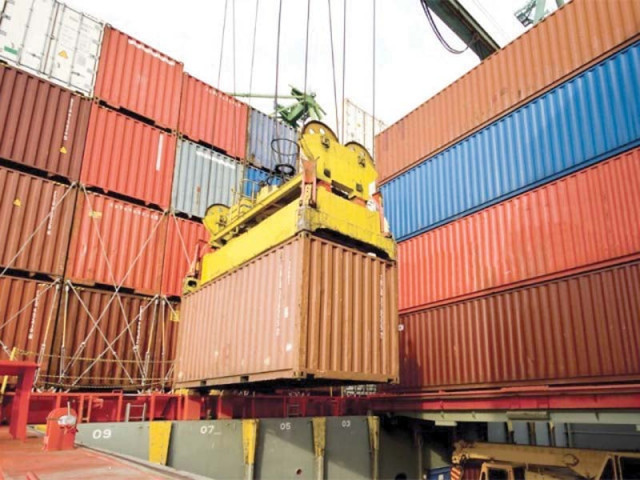Focus only on boosting exports is a bad strategy
Country needs liberalised import regime to enhance exports, but it is missing

Country needs liberalised import regime to enhance exports, but it is missing
PHOTO: REUTERS
The government is about to launch new Strategic Trade Policy Framework (STPF) 2018-23 to boost trade performance and enhance exports. Two major think tanks organised wide-ranging consultations in the last few weeks and there is a need to revisit some of these recommendations.
First set of recommendations came from a World Bank-funded series of consultations with private-sector representatives in provincial capitals organised by the Sustainable Development Policy Institute (SDPI).
High Commission’s Efforts: Investment conference to be held in UK
The focus of these consultations was export competitiveness and thus the participants were mainly drawn from the exporting sector of the country. Key challenges to export competitiveness identified by the private sector in these consultations include:
- Regulatory constraints at federal and provincial government levels
- High cost of doing business including energy costs and import tariffs
- Inadequate trade facilitation and supporting instruments
- Lack of coordinated support from institutions responsible for export promotion and help
- Market and product diversification
- Weak availability of credit for exports, particularly for potential and new exporters, and
- An exchange rate regime that is perceived to reinforce anti-export bias of the de facto trade policy.
These were the questions which needed detailed answers including reasons due to which intended benefits from Pakistan’s free trade agreements (FTAs) and European Union’s Generalised Scheme of Preferences Plus (GSP+) could not be achieved.
Second set of recommendations came from the first National Conference on Open Trade, supported by Friedrich Naumann Foundation and organised by free market think tank PRIME Institute.
This forum was mainly addressed by leading economists, trade policy experts and government representatives. The main issues highlighted by this forum include:
- Distortion of energy pricing, where the industry ends up subsidising domestic consumer bills
- A tax system which penalises tax-compliant forms and retards export growth
- High tariffs, which function as tax on exports, as a 1% rise in tariff complexity contributes to a 13% decline in export growth
- Pakistan is not part of global supply chains, which account for 70% of global trade
- Stifling regulations and over-burdened businesses due to regulations
- Trade dispute resolution mechanisms are missing
- Lack of attention to the potential of regional trade partners
- SRO culture failing to create a predictable market-friendly environment
- Lack of encouragement of a ‘Made in Pakistan’ culture
- Lack of special economic zones
From a cursory look, it becomes evident that both sets of recommendations, one coming from the private sector and the other originating from economists, have more points of convergence rather than divergence, which is certainly a good news.
This convergence can provide a basic framework for the new STPF, which can serve Pakistan’s trade interests. However, let’s now discuss a few points which were missed by both consultations.
First, no matter what the recommendations are, the quality of implementation will matter. It must be ensured that the Ministry of Commerce and other institutions responsible for trade policy implementation must be staffed with properly trained experts with a reasonable degree of autonomy and job security.
Second, all stakeholders must realise that industry promotion and industry protection are two different strategies. Pakistan has done enough industry protection, but not enough industry promotion.
The industry promotion includes creating an enabling environment, trade facilitation, protection of intellectual property and reliability of industrial policy.
Making supply chains more ethical
Third, we must be cognisant that exports and imports together constitute the trade regime and a singular focus on export enhancement is a bad strategy. We need a liberalised import regime to boost exports, but unfortunately this rather simple relationship is lost on most trade policymakers and analysts.
Fourth, while turning around Pakistan’s trade regime may be very difficult in the short run, the government can set up an inter-ministerial task force on doing business reforms and strengthen existing efforts in this domain. The government did set up a similar task force initially, but then gradually it was placed on the back burner.
Last, given the devolution, it may make sense for the federal government to re-negotiate the mandate with respect to regulations of exports and create a healthy competitive environment among provinces to attract competitive domestic and international businesses.
The writer is the founder of PRIME Institute, an independent think tank based in Islamabad
Published in The Express Tribune, April 2nd, 2018.
Like Business on Facebook, follow @TribuneBiz on Twitter to stay informed and join in the conversation.



















COMMENTS
Comments are moderated and generally will be posted if they are on-topic and not abusive.
For more information, please see our Comments FAQ